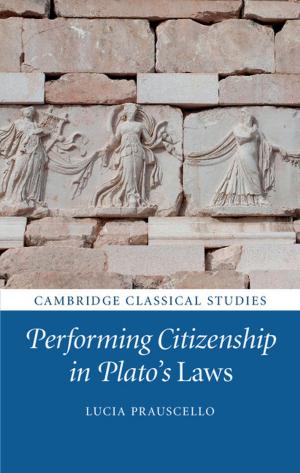Religious Persecution and Political Order in the United States
Nonfiction, Social & Cultural Studies, Political Science, Government| Author: | David T. Smith | ISBN: | 9781316430408 |
| Publisher: | Cambridge University Press | Publication: | November 12, 2015 |
| Imprint: | Cambridge University Press | Language: | English |
| Author: | David T. Smith |
| ISBN: | 9781316430408 |
| Publisher: | Cambridge University Press |
| Publication: | November 12, 2015 |
| Imprint: | Cambridge University Press |
| Language: | English |
Religious freedom is a foundational value of the United States, but not all religious minorities have been shielded from religious persecution in America. This book examines why the state has acted to protect some religious minorities while allowing others to be persecuted or actively persecuting them. It details the persecution experiences of Mormons, Jehovah's Witnesses, Catholics, Jews, the Nation of Islam, and orthodox Muslims in America, developing a theory for why the state intervened to protect some but not others. The book argues that the state will persecute religious minorities if state actors consider them a threat to political order, but they will protect religious minorities if they believe persecution is a greater threat to political order. From the beginning of the republic to after 9/11, religious freedom in America has depended on the state's perception of political threats.
Religious freedom is a foundational value of the United States, but not all religious minorities have been shielded from religious persecution in America. This book examines why the state has acted to protect some religious minorities while allowing others to be persecuted or actively persecuting them. It details the persecution experiences of Mormons, Jehovah's Witnesses, Catholics, Jews, the Nation of Islam, and orthodox Muslims in America, developing a theory for why the state intervened to protect some but not others. The book argues that the state will persecute religious minorities if state actors consider them a threat to political order, but they will protect religious minorities if they believe persecution is a greater threat to political order. From the beginning of the republic to after 9/11, religious freedom in America has depended on the state's perception of political threats.















